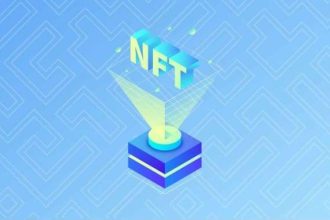eCommerce and the world of business, in general, is constantly changing and growing. What was the ‘in thing’ five years ago can quickly become the ‘out thing,’ and what was ‘out’ can possibly become ‘in.’
Digital and high-tech businesses can come and go, but eCommerce has been around far too long and is here to stay. It takes time and planning to keep up and be successful in this constantly evolving online world.
If you’re looking for eCommerce terms, look no further. In this guide, you’ll find a comprehensive list of some unfamiliar yet noteworthy eCommerce terms you need to know to succeed in e-business.
1. Affiliate Marketing
Affiliate marketing is an eCommerce term that is very important to understand. It is a form of marketing in which a business pays a commission to another company or individual for referring customers to them.
This is done through the use of unique links that identify a potential customer who has been referred by the affiliate. Affiliates typically earn a commission when a customer makes a purchase.
2. Authorization
eCommerce Authorizations are a secure online payment gateway. They are essential for keeping customer data safe and secure. All online payments must go through the authorization process in order to guarantee secure payment.
Authorization confirms that a customer has sufficient funds to pay for the purchase. It is a necessary part of the purchase process. Merchants should also consider their own terms and conditions of sale. This is crucial in order to uphold the protection of the customer’s information as it passes from their computer to the online payment gateway.
3. Product Information Management (PIM)
Product Information Management (PIM) is an important eCommerce term that refers to the process of collecting, organizing, and managing product information in an efficient centralized format. This includes data like:
- product descriptions
- images
- technical specifications
- marketing and promotional content
By using the best PIM solution, merchants are able to quickly and easily organize their product data. This way, they can create consistent and accurate listings of eCommerce products on their eCommerce websites.
4. Bundling/Product Bundling
Bundling or Product Bundling refers to the process of combining multiple items into a single package and offering them for sale as one item. It is a great way to increase sales and customer loyalty.
This allows retailers to increase the amount of products customers buy from them at one time. In addition, bundling also helps reduce overall inventory levels and the cost of purchase for customers
5. Business-to-Business (B2B)
Business to Business B2B involves the trading of goods and services between businesses conducted over an online platform. B2B is of great advantage to businesses as it allows for quick, secure, and efficient transactions.
It can save time and money for businesses, as they can make quicker comparisons of pricing and availability than with traditional trade.
Understanding These eCommerce Terms for Your Business
In summary, e-commerce businesses need to be aware of all the different terminology associated with their product or service. Being aware of specific eCommerce terms will help businesses stay on top of industry trends and provide better customer service.
Take advantage of the information in this article and make sure you stay up to date with the latest developments in eCommerce terms and strategies. Start building your online store with confidence today!
Did you find this article helpful? You can check out our website for more awesome content like this.













